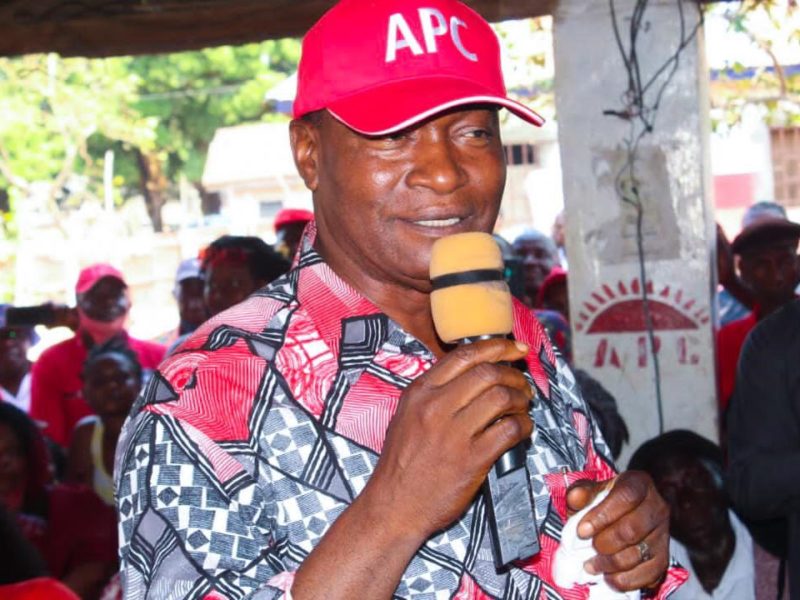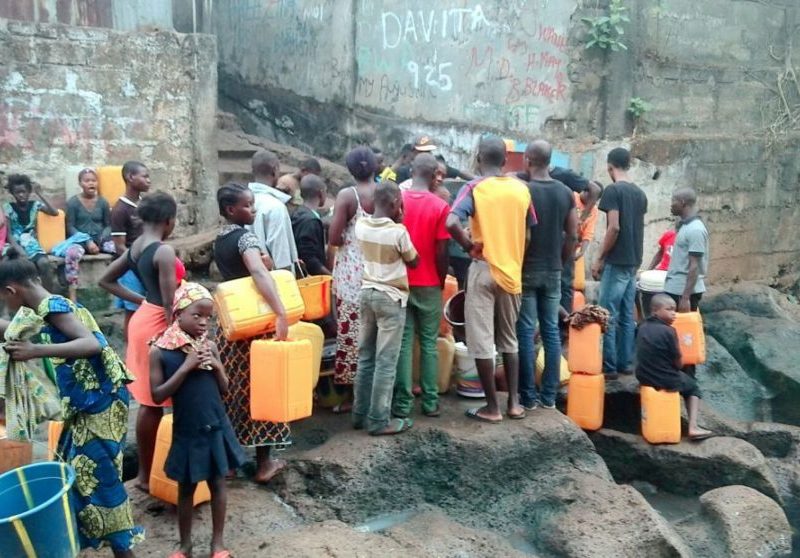Can Britain lift Sierra Leone out of poverty?
There is peace in Sierra Leone today where only 10 years ago there was mayhem – a war fought by child soldiers that made a fetish out of brutality and turned cruelty into bizarre, dark, mysticised ritual. Â (Photo: Sierra Leoneans feel they are caught in the poverty trap)
I travelled to the countryside to find an old acquaintance from my time covering that conflict, Suleiman Kamara.
When rebels tore through Mr Kamara’s village 12 years ago they destroyed the house he grew up in. Indeed, everywhere you look there are reminders of the dereliction war brought with it.
Despite receiving hundreds of millions of pounds of humanitarian and development aid from Britain, 10 years of peace have done little to shift the entrenched poverty, unemployment, and high adult and child mortality across Sierra Leone.
Mr Kamara introduced me to Alfamanda Koroma, the oldest man in the village. Two of his three sons died during the war, the third is missing. He is left alone with the women and the grandchildren.
“How am I supposed to feed my family?” he asked me. “Since the war ended people can hardly help themselves, never mind each other.”
There has been no discernable development here, and generation after generation of children are coming out of school with no prospect of a job.
The anger and the frustration that fuelled so much of the war are still tangible, and people are hungry for the benefits they thought peace would bring.
“The government says we have to go to school,” a young girl told me, “and we want to, but we don’t have any money and we can’t find jobs. So we drop out, go to early marriages, and have lots and lots of children.”
‘Neo-colonialism’
Another young man explained how he went to college to become a teacher.
“I’ve been teaching for a year without pay,” he said. “It discourages other people from going to college. Nobody’s happy.”
It is more than 50 years since the British left Sierra Leone and the country embraced independence, while the whole of the continent of Africa freed itself from the shackles of colonial domination. But now Sierra Leone wants its former colonisers to return with more help.
“They are our colonial masters. We are almost infused into each other now. It’s a family tie,” Suleiman told me.
It is both surprising and counter-intuitive to hear this enthusiasm for foreign interference.
Valnora Jones says that to some extent the British already run the country
But British political influence in Sierra Leone is far greater now than it has been since the end of the Empire.
British government officials sit in the main offices of state here – monitoring what the ministers do, supervising, scrutinising, guiding the country toward European-style good governance.
Critics might call this level of direct, hands-on intervention neo-colonialism, others say Britain is simply helping its former colony for future generations.
Valnora Jones of the non-governmental organisation, Campaign for Good Governance, said that to some extent, the British have been pretty much running the country.
“An inside source told me that when other donor partners are coming, they need clearance from DFID [the UK Department for International Development] or the UK before they can do x and y, and everywhere you go, there’s a British person.”
In the capital Freetown, I asked the Minister of Finance and Economic Development, Dr Samura Kamara, if Britain’s role in Sierra Leone was a form of neo-colonialism.
“I wouldn’t put it that way, it’s a kind of partnership. The global architecture has changed for development, you need a partnership. So it’s different from the old master and servant type of relationship.”

They are at a point in their history where they need help, and they're smart enough to realise that and to get that help, Tony Blair, former British PM
Tony Blair, the British prime minister who ordered Britain’s decisive intervention in Sierra Leone’s civil war, is considered a folk hero in Sierra Leone.
On his last visit as prime minister he was even made a paramount chief – the highest level of leader in a tradition which dates back to pre-colonial times. He was also given an African name, Shabaru Matoffel, meaning the bringer of peace.
I asked Mr Blair if he thought that it was odd that Sierra Leoneans were so keen to have their old colonial masters back.
“If I was coming back in that capacity, I’d be run out of the country pretty fast.
“What they are prepared to do though is to acknowledge, that in order to make their country what they want it to be, they are at a point in their history where they need help. And they’re smart enough to realise that and to get that help.”
The familiar post-colonial African narrative that blamed all of the continent’s ills on the legacy of European imperialism seems to be fading.
The people have had enough of it, and now want something more constructive. The British are back and planting the seeds of progress.
Alan Little, BBC
Stay with Sierra Express Media, for your trusted place in news!
© 2010, https:. All rights reserved.








